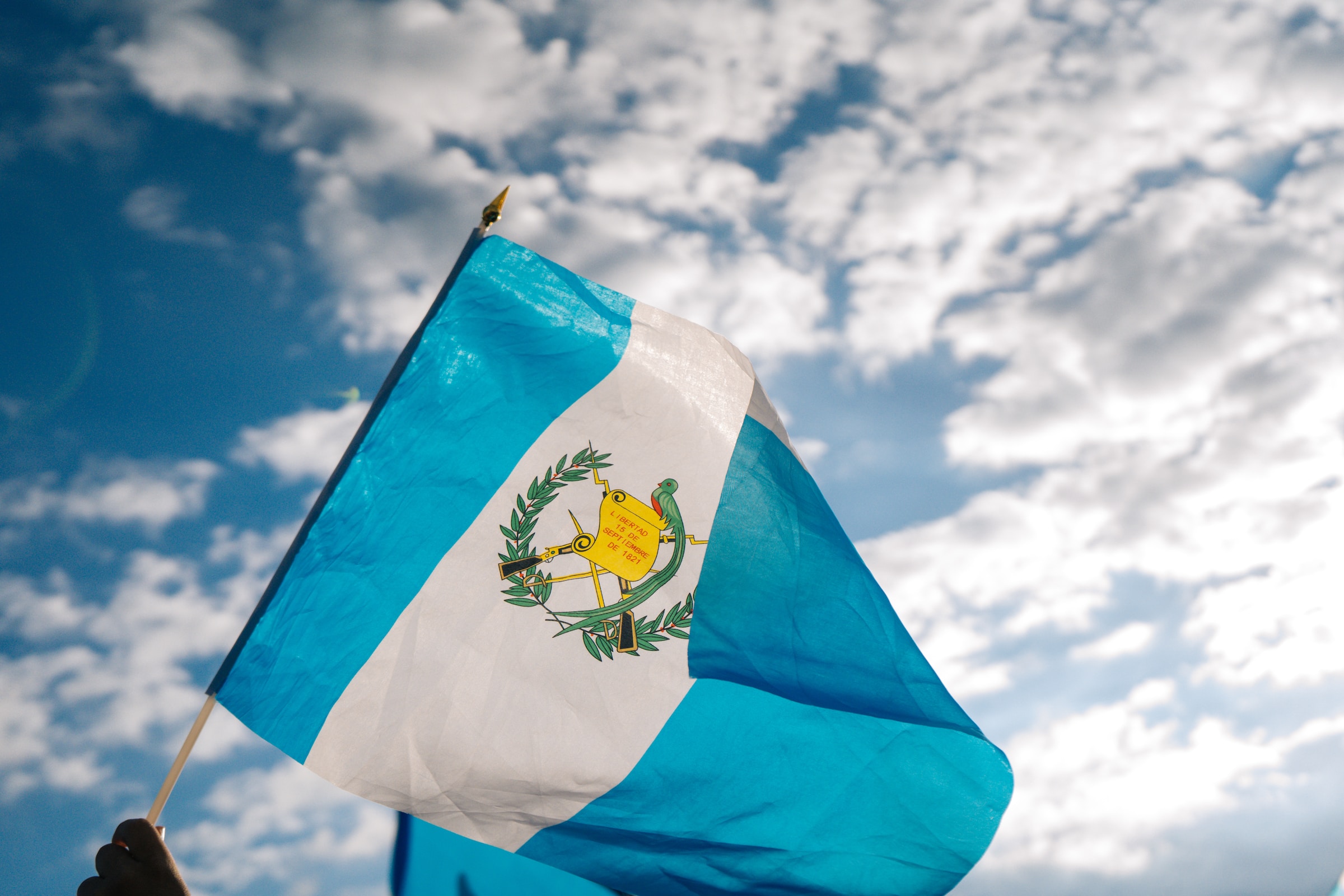Guatemala: Election Results Sow New Hope
A surprise second-place finish for anti-corruption candidate bodes well for a country plagued by corruption.
A surprise second-place finish for anti-corruption candidate bodes well for a country plagued by corruption.
The following article was published in the July-August 2023 issue of NewsNotes.
Guatemalans awoke to unexpected results the morning after the country’s June 25 national elections. Bernardo Arévalo of the Semilla party, an anti-corruption candidate who had been polling in eighth place, took second place in the voting with 11.8% of votes, behind frontrunner Sandra Torres with 15.78%. The two will face one another in a runoff election on August 20.
Both candidates are described as “center-left.” But in Guatemala and throughout the region, such designations have become increasingly irrelevant, giving way to a more salient division between corruption and authoritarianism vs. democratic rule of law.
For the first time in Guatemala, more voters cast null or spoiled ballots than voted for any candidate, with 17.39% – a strong indicator of broad dissatisfaction and mistrust in establishment politicians and an election. Other top anti-corruption candidates were disqualified on arbitrary grounds by the Supreme Electoral Tribunal, while several leading candidates who were allowed to run had openly violated election rules. Arévalo’s strong showing injected a new sense of hope into an electoral process church officials and human rights defenders had seen as unlikely to bring much-needed change to the country.
In recent years, a powerful conglomeration of political and military leaders, wealthy elites, and organized crime groups widely referred to as the “Pact of the Corrupt” have systematically dismantled or coopted Guatemala’s democratic institutions.
MOGC participated in a June 21 virtual meeting organized by the Root Causes Initiative, an international grassroots and faith-based network convened by the HOPE Border Institute and Faith in Action, with USAID and State Department officials. Cardinal Álvaro Ramazzini, Bishop of Huahuetenango, told U.S. government officials that Guatemala was a “failed state” ruled by a “dictatorial, authoritarian” regime. He predicted that the elections would only serve to further entrench corruption. Describing the desperation of Guatemalans, he lamented, “Nothing will change.”
But Arévalo’s runoff campaign seems to change that calculus. The son of Guatemala’s first democratically elected president, Juan José Arévalo Bermejo, the younger Arévalo has experience as a diplomat, a government minister, and a member of the legislature. Because polls had him and running mate, Karin Herrera, far behind the projected frontrunners, his earnest, grassroots campaign was not seen as a threat, which may be why he was allowed to remain in the race. Now, journalists and human rights advocates view the August runoff as the first realistic chance in years to break the stranglehold of corrupt interest on the Guatemalan state.
Before the election, Jorge Santos, head of the Unit for the Protection of Human Rights Defenders (UDEFEGUA), told the Guardian, “It doesn’t matter who wins, the political mafia has already made sure that the regime will continue and we will be in crisis for at least another generation.” But after the election results were announced, Santos retweeted a tweet saying, “Thank you, Semilla, for shutting my mouth. It’s the best thing that’s happened to me in my life.”
In another significant deviation from polling trends, candidate Zury Ríos – the daughter of Efraín Ríos Montt, the brutal military dictator of the 1980s – had consistently been predicted to finish in second or third place, but came in sixth.
Corruption as a root cause of migration
The Root Causes initiative sent a letter to President Biden and Vice President Harris on June 12 urging them to take stronger steps before the election. The Maryknoll Affiliates chapter in Guatemala were among the signers.
“In plain terms,” the letter reads, “powerful and corrupt business interests, politicians, and current and ex-military officials have captured the Guatemalan state to enrich themselves. This corrupt pact… (has) arbitrarily manipulated ballot access rules to undermine the upcoming national elections.
“The consequences for ordinary Guatemalans are devastating. More and more people are being displaced by illegal mining and agribusiness projects that operate with impunity. The lack of democratic accountability leads to Guatemala having one of the lowest tax rates in Latin America and a massive underinvestment in education, health, and development. More than half of all Guatemalans live in poverty. These economic pressures are the root causes that force Guatemalans to migrate. If nothing is done to change course, Guatemala is headed into a period of greater political and social instability that will drive even more people to flee.”
Many see Arévalo’s Semilla party as more directly aligned with organizations that have been sounding the alarm on all of these issues. In a situation that seemed hopeless, Guatemalan voters have managed to keep hope alive.
Faith in action
If you, or anyone you know, is eligible to vote in the Guatemala election while abroad, follow the instructions here to cast your vote in the runoff election. https://migrante.tse.org.gt/home
Photo of Guatemala’s flag via Unsplash

